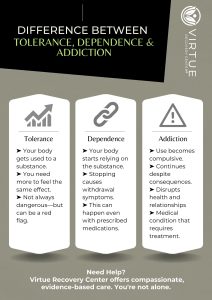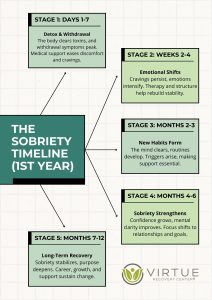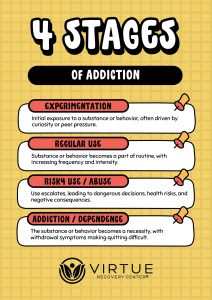Have you ever wondered why some people can’t find happiness even after they stop drinking? This is known as “dry drunk syndrome.” It’s a complex issue that challenges our view of recovery from alcohol use disorder. Let’s dive into this topic and see how it affects the path to lasting sobriety.
Dry drunk syndrome is a term from Alcoholics Anonymous. It describes people who have stopped drinking but haven’t dealt with the issues that led to their addiction. This condition keeps someone in a state of negativity and addictive behaviors, even without alcohol. It’s a big obstacle in recovery and can make relapse more likely.
Unlike true recovery, which involves personal growth and positive changes, dry drunk syndrome keeps people stuck in bad habits. Knowing that just being sober doesn’t mean you’re recovered is important. Without fixing deep issues like trauma or mental health problems, people may still face emotional and psychological challenges after quitting alcohol.
It’s key to spot dry drunk syndrome for those looking for help at an addiction treatment center. It shows the need for care that goes beyond just stopping drinking. By tackling the deep issues and learning healthy ways to cope, people can move from just being sober to truly recovering. This reduces the chance of falling back into old habits and boosts overall well-being.
Key Takeaways
- Dry drunk syndrome involves maintaining negative behaviors despite sobriety
- It differs from true recovery and can increase relapse risk
- Addressing underlying issues is crucial for overcoming this condition
- Comprehensive treatment is essential for lasting recovery
- Recognizing dry drunk syndrome can improve addiction treatment outcomes
Understanding Dry Drunk Syndrome
Dry drunk syndrome is a real challenge in addiction recovery, even though it’s not officially recognized. It affects those who stop drinking without getting help for alcohol addiction. This condition can make recovery harder and raise the chance of falling back into old habits.
Those with a substance use disorder who stop drinking but don’t get counseling or join support groups are more likely to face dry drunk syndrome. It’s most common in the first year of being sober, a tough time emotionally.
- Mood swings
- Poor decision-making
- Relationship difficulties
- Self-pity
- Self-centered attitude
- Isolation from support networks
These signs can creep up slowly, lasting from weeks to years as the body and mind adjust after heavy drinking.
| Aspect | Dry Drunk Syndrome | Healthy Recovery |
|---|---|---|
| Attitude | Self-centered, superior | Open-minded, humble |
| Support | Isolated | Engaged in support networks |
| Behavior | Poor impulse control | Improved self-control |
| Emotional state | Unstable, mood swings | More balanced, aware |
Getting over alcohol addiction means dealing with the mental and behavioral issues that led to it. With professional help, support groups, and ongoing therapy, managing dry drunk syndrome is possible. This can lead to a lasting recovery.
Signs and Symptoms of Dry Drunk Syndrome
It’s key to spot dry drunk syndrome early for recovery to work. This happens when people stop drinking but still face emotional and mental challenges from their addiction. At Virtue Recovery Las Vegas, we see many signs of this issue in our clients.
Behavioral Signs
Dry drunk behavior shows in different ways. Look out for:
- Seeking constant attention
- Difficulty communicating
- Rejecting constructive feedback
- Romanticizing past alcohol use
- Refusing to acknowledge addiction-related problems
Emotional Signs
Emotions in a dry drunk can be all over the place. Watch for:
- Extreme mood swings
- Feelings of victimization
- Fear of change
- Anger towards those who intervened
- Frustration over lost time
- Jealousy towards others in healthy recovery
| Behavioral Signs | Emotional Signs |
|---|---|
| Attention-seeking | Mood swings |
| Poor communication | Victimization feelings |
| Rejecting feedback | Change aversion |
| Romanticizing addiction | Anger and frustration |
| Denial of problems | Jealousy |
If you or someone close to you shows these signs, getting help is crucial. Virtue Recovery Las Vegas has programs to tackle dry drunk syndrome and aid in lasting recovery.
Causes and Contributing Factors
Understanding dry drunk syndrome helps tackle alcohol use disorder. It often comes from deep-seated issues. These can get worse with post-acute withdrawal symptoms.
Underlying Issues
Dry drunk syndrome often starts from problems that led to alcohol abuse. These include:
- Trauma or past abuse
- Genetic risk for addiction
- Mental health issues like depression or anxiety
- Poor coping skills
- Negative self-perception
People may use alcohol to deal with these problems. Without treatment, these issues can stick around after quitting. This can lead to dry drunk behavior.
Post-Acute Withdrawal Syndrome (PAWS)
PAWS can greatly affect dry drunk syndrome. It’s a condition with ongoing withdrawal symptoms that can last for months or years after stopping alcohol. Symptoms include:
- Mood swings
- Anxiety
- Irritability
- Fatigue
- Cognitive difficulties
These ongoing symptoms make it hard for people to live sober. This can lead to dry drunk behaviors. Getting help from an addiction treatment center is key. It helps manage PAWS and stops dry drunk syndrome.
| Risk Factor | Impact on Alcohol Use Disorder |
|---|---|
| Family History | Higher risk due to genetic influence |
| Mental Health Disorders | Increased susceptibility, especially with anxiety and depression |
| Early Drinking Age | Greater likelihood of developing alcohol use disorder |
| High-Stress Professions | Elevated risk, particularly in military and high-risk jobs |
Alcoholism and Dry Drunk Syndrome
Alcoholism, or Alcohol Use Disorder (AUD), is closely tied to dry drunk syndrome. Stopping drinking without fixing the underlying issues can lead to a cycle of bad behaviors and feelings. This cycle, known as dry drunk syndrome, can make recovery hard.
The link between alcoholism and dry drunk syndrome is deep. Even without alcohol, you might act and think like an alcoholic. This shows the big difference between just being sober and fully recovering from AUD.
The Impact of Post-Acute Withdrawal Syndrome
Post-acute withdrawal syndrome (PAWS) is key in dry drunk syndrome. The Semel Institute says about 75% of people recovering from AUD face PAWS. These symptoms can last up to two years, raising your chance of falling back into old habits.
| Aspect | Alcoholism | Dry Drunk Syndrome |
|---|---|---|
| Physical Dependence | Present | Absent |
| Behavioral Issues | Present | Present |
| Emotional Struggles | Present | Present |
| Risk of Relapse | High | High |
Knowing how alcoholism and dry drunk syndrome are connected is key to getting better. By tackling both the physical and mental sides of your AUD, you can aim for real healing and avoid dry drunk syndrome.
Treatment Options for Dry Drunk Syndrome
Dealing with dry drunk syndrome needs a full approach. At Virtue Recovery Las Vegas, we offer many strategies to help you beat this tough condition.
Therapeutic Treatments
Evidence-based therapies are key in managing dry drunk syndrome. Cognitive-behavioral therapy (CBT) helps you spot and change bad thought patterns. Our skilled therapists work with you to build healthy coping skills and boost your emotional health.
One-on-one counseling is vital for tackling deep-seated issues. These sessions give you a safe space to examine your feelings, triggers, and personal hurdles. Your therapist guides you through the recovery process and helps you find strategies for staying sober long-term.
Support Networks
Peer support groups are crucial in recovery. Joining 12-step programs or other groups can lessen feelings of loneliness and boost motivation. Sharing stories with others who get what you’re going through can be very healing.
| Treatment Component | Benefits |
|---|---|
| Cognitive-Behavioral Therapy | Identifies negative thought patterns, develops coping skills |
| Individual Counseling | Addresses personal challenges, explores emotions |
| Support Groups | Reduces isolation, provides peer encouragement |
| Aftercare Planning | Ensures ongoing support, prevents relapse |
Remember, recovery is a journey. If you’re facing dry drunk syndrome, contact Virtue Recovery Las Vegas. Our dedicated team is ready to support you at every step.
Living with Dry Drunk Syndrome
Living with dry drunk syndrome can be tough. You’ve stopped drinking, but emotional and behavioral issues from alcohol addiction may still affect you. Building healthy habits and keeping support are important to beating these challenges.
Healthy Habits
Creating new routines is crucial for managing dry drunk syndrome. Try finding hobbies that make you happy and fulfilled. Doing activities that help you grow, like taking classes or volunteering, can fill the space left by alcohol and boost your mood.
Practicing mindfulness and meditation can greatly aid your recovery. These methods help you stay in the moment and handle stress without alcohol. Remember, being sober means more than just not drinking. It’s about changing your life and finding new ways to deal with problems.
Continued Support
Keeping up with a support network is key. Being active in 12-step meetings or support groups gives you a safe place to discuss your ups and downs. Having a sponsor can offer advice and keep you on track in your recovery.
Therapy sessions are also important for dealing with issues like resentment, fear of failure, or trouble accepting past mistakes. A therapist can teach you ways to handle these feelings and think more positively.
“Recovery is not just about stopping drinking. It’s about creating a new life where it’s easier not to use.”
Remember, recovery is a journey. By building healthy habits and keeping support, you can beat dry drunk syndrome and stay sober for good. Stick to your recovery plans and be kind to yourself as you move forward.
Conclusion
Dry drunk syndrome is a big challenge in alcohol recovery. It happens when you stop drinking but still feel the effects emotionally or mentally. Knowing the signs is key for those fighting alcohol use disorder. Chronic drinking can lead to serious health problems like liver and kidney issues.
If you’re facing dry drunk syndrome, there is help out there. Addiction treatment centers provide full support. They help with both the physical and emotional sides of recovery. Recovery is more than just stopping drinking; it’s about making lasting changes in your life.
In the U.S., what’s considered heavy drinking varies for men and women. For women, it’s over three drinks a day or seven a week. For men, it’s over four drinks a day or 14 a week. These guidelines show why drinking in moderation is important. If you’re worried about your drinking or someone else’s, get professional help. With the right support, you can beat dry drunk syndrome and find true healing.
FAQ
What is a dry drunk?
A dry drunk is someone who has stopped drinking but still has not dealt with their issues. They keep negative attitudes and behaviors linked to alcoholism, even when sober.
What are the signs and symptoms of dry drunk syndrome?
Signs include wanting attention and having trouble communicating, refusing criticism, and thinking they know best. Emotional signs include mood swings and feeling like a victim.
Other signs are fear of change, anger, frustration, jealousy, and resentment. Negativity, depression, anxiety, and self-obsession are also common.
What causes dry drunk syndrome?
Trauma, social conditioning, and genetic factors can cause dry drunk syndrome. Not knowing how to cope and negative self-beliefs also play a part. Post-acute withdrawal Syndrome (PAWS) and changing one’s identity without substances are other factors.
How is dry drunk syndrome related to alcoholism?
The dry drunk syndrome is closely tied to alcoholism. It often happens in people who have stopped drinking but haven’t dealt with their addiction fully. It can lead to relapse, showing the need for full treatment for alcohol use disorder.
What are the treatment options for dry drunk syndrome?
Treatment includes therapies like cognitive behavioral therapy and dialectical behavior therapy. Motivational enhancement therapy is also used. Support networks like 12-step programs and mutual support groups are key.
Aftercare treatment plans are also important.
How can someone live with dry drunk syndrome?
Living with dry drunk syndrome means following aftercare plans and going to support meetings. Working with a sponsor and using healthy coping strategies is important.
Continued support through therapy, support groups, and sober connections is crucial.
Why is it important to address dry drunk syndrome?
Dry drunk syndrome means being sober but not emotionally or psychologically healed. Recognizing its signs and causes and getting the right treatment is key to overcoming it. This leads to lasting, meaningful recovery.
Can PTSD Lead to Dry Drunk Behavior?
Understanding the basics of posttraumatic stress is crucial when discussing the link between PTSD and dry drunk behavior. Individuals with PTSD may use alcohol as a coping mechanism, leading to a pattern of behavior resembling that of a “dry drunk” – displaying similar traits and attitudes as someone who is actively drinking.
Source Links
- https://www.mayoclinic.org/diseases-conditions/alcohol-use-disorder/symptoms-causes/syc-20369243 – Alcohol use disorder – Symptoms and causes
- https://www.medicalnewstoday.com/articles/dry-drunk-syndrome – Dry drunk syndrome: Definition, symptoms, how to cope
- https://www.psychologytoday.com/us/blog/heartache-hope/201105/is-there-dry-drunk-in-your-life – Is There A “Dry Drunk” in Your Life?
- https://www.ncbi.nlm.nih.gov/books/NBK425667/ – Summary and conclusions – Modifying Alcohol Consumption to Reduce Obesity (MACRO): development and feasibility trial of a complex community-based intervention for men
- https://bio.libretexts.org/Bookshelves/Human_Biology/Human_Biology_(Wakim_and_Grewal)/19:_Urinary_System/19.6:_Case_Study_Conclusion:__Alcohol_and_Chapter_Summary – 19.6: Case Study Conclusion: Alcohol and Chapter Summary
- https://www.mayoclinic.org/healthy-lifestyle/nutrition-and-healthy-eating/in-depth/alcohol/art-20044551 – Alcohol in moderation: How many drinks is that?













